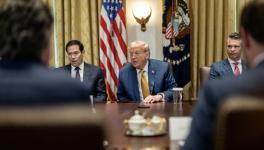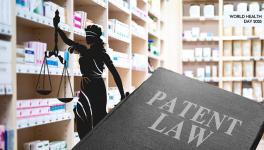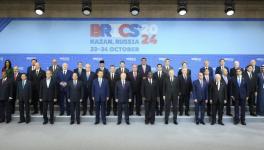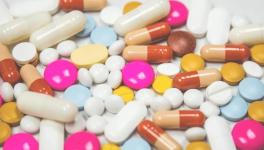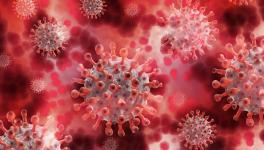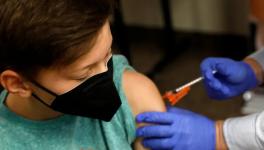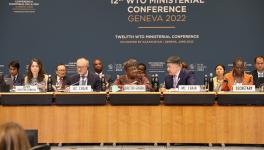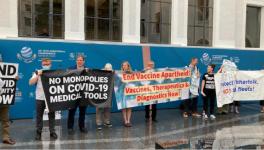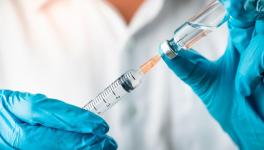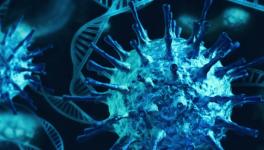Patent Free Vaccine Not Enough as Hospitals are Expensive For Commoners
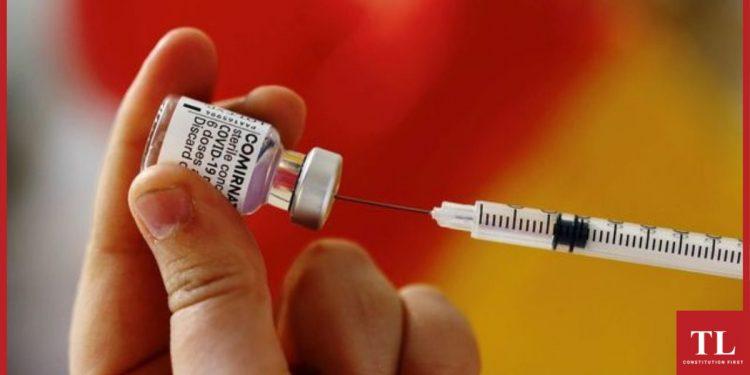
India is among several WTO members, especially those from the lower and middle-income groups, to demand patent waiver for vaccines. Human rights bodies and global advocacy groups have also raised it but have been unsuccessful so far in the face of strong lobbying by powerful pharmaceutical firms, writes NANTOO BANERJEE.
—–
If the primary purpose of the World Trade Organization is “to open trade for the benefit of all,” it may be time for WTO to revisit its agreement on trade-related aspects of intellectual property rights (TRIPS) to do away with patents on Covid vaccines as well as drugs. Only this can save millions of lives across the world.
The global vaccine market this year could be closer to $28 billion. The market size of Covid medicines, mostly unproven and hospital-administered, is several times bigger.
IPR contributes a substantial portion to Covid vaccine and drug prices.
The TRIPS agreement was negotiated during the 1986-94 Uruguay Round before introducing intellectual property rules into the multilateral trading system for the first time.
The question is: can WTO withstand the pressure of the global pharma biggies to achieve its Millennium Development Goals (MDG) to create an enabling international environment, especially for developing countries?
Thanks to TRIPS, Covid vaccine manufacturers and market leaders are in no mood to dilute the patent charges. They include AstraZeneca plc, Pfizer Inc., Sanofi S.A., Novavax, Inc., Moderna, Inc., Sinovac Biotech Ltd, Johnson & Johnson, Symvivo, Shanghai Fosun Pharmaceutical Group Co., CanSino Biologics Inc., CureVac AG and Arcturus Therapeutics Holdings Inc.
Three Indian companies — Cadila Healthcare, Serum Institute and Bharat Biotechalso feature among the global producer-marketers to Covid vaccine.
According to WHO, several Covid vaccines are still undergoing clinical evaluations. Many healthcare organisations are getting funded globally due to their distribution rights of coronavirus vaccine. For instance, on October 13, last year, the World Bank approved a total of US$ 12 billion to developing economies in order to finance the testing, purchase, distribution, and treatment of the COVID-19 vaccine.
Amidst the TRIPs controversy, it may be heartening to note that several pharmaceutical companies from different countries have joined hands under the umbrella of a non-profit medicines patent pool (MPP).
A coalition of 18 drug companies from India, China, Bangladesh and South Africa that manufacture generic drugs have pledged to work together to accelerate access to millions of doses of new interventions for low- and middle-income countries.
The Indian drug firms include Sun Pharma, Lupin, Aurobindo, Zydus Cadila, Hetero, Natco and Strides Shasun. Such cooperation among competing drug firms to control and defeat the pandemic is rather unprecedented.
Until early last week, the pandemic had affected over 160 million people globally and killed over 3.3 million. Over 4.5 lakh died in Brazil and nearly 2.5 lakh died in India. The US topped in the count with 5.8 lakh victims. France recorded one lakh dead.
Incidentally, the huge global market for Covid-19 drugs is mostly for those which are yet to be accepted as fully “proven” remedies. Many are approved for “emergency use” or as an “off-label” drug.
Among those drugs being used in India are Hydroxychloroquine, Favipiravir, Remdesivir, Tocilizumab, Itolizumab, Dexamethasone, Methylprednisolone, low molecular weight Heparin and antibiotics such as Azithromycin and Ivermectin. In addition, convalescent plasma therapy is approved as an “off-label” therapy.
Last week, the Lancet Commission said plasma therapy is ineffective on Covid patients. The Commission conducted a trial on 16,000 patients and there was no significant improvement in those patients. However, as mentioned earlier, these medicines provide no “proven” remedies. For instance, Hydroxychloroquine is approved as a treatment in mild cases and as prophylactic. Compelling data from multiple large clinical trials such as WHO’s SOLIDARITY and the UK’s RECOVERY find HCQS does not show benefits in treatment. The USFDA revoked ‘Emergency Use Authorisation.’ India moved the drug out of treatment protocol for severe cases. Its side effects include severe heart arrhythmia.
Favipiravir is an oral antiviral drug, fast-tracked by India’s Drug Controller General. It received ‘Emergency Use Authorisation’ for treatment of mild or moderate infections. The drug was not approved in the EU or US.
Remdesivir is Gilead Sciences’ patented anti-viral drug, was earlier tried on Ebola.
Tocilizumab was originally used on patients with rheumatoid arthritis.
Dexamethasone is said to be the only drug so far to show a striking impact on mortality.
The UK’s ‘RECOVERY’ trials show Dexamethasone can reduce deaths by one-third in patients with severe Covid-19 infection who need oxygen therapy or are on ventilators.
Remdesivir, Tocilizumab and Itolizumab — all injectables — are used in hospitals only. Some of them are very expensive. Covifor is priced at around Rs. 5,400/100 mg vial. Cipla’s Cepremi is Rs. 4,000/vial. Itolizumab price is Rs. 32,000 for full treatment or Rs. 8,000/vial. The Covid treatment under hospitalisation makes it frightfully expensive.
Vaccines are generally meant to strengthen the immunity system while drugs are supposed to be curative.
A lifting of the patent protection for vaccines will mean that once the formula is shared, any company having the required technology and infrastructure can produce vaccines. This will lead to cheaper and more generic versions of Covid vaccines.
It will also help in overcoming vaccine shortages. Under the patent system, only drug companies that own patents are authorised to manufacture Covid vaccines. However, the removal of patent protection alone does not guarantee that vaccine prices will come down substantially.
In the capitalist system, prices are determined by the demand-supply equation and quality. And, as WHO chief Tredos Adhanom himself explained, innovators will stand to get royalty. The patent holders argue that innovation, as well as vaccine quality and safety, will depend on maintaining exclusive IPRs.
Incidentally, the present pricing of insulin, the world’s single largest selling drug, demolishes the patent-price myth.
When inventor Frederick Banting, a physician turned researcher, discovered insulin in 1923, he refused to put his name on the patent as he felt it was unethical for a doctor to profit from a discovery that would save lives.
Banting’s co-inventors, James Collip and Charles Best sold the insulin patent to the University of Toronto for a mere $1. They wanted everyone who needed their medication to be able to afford it.
Today, Insulin has become the poster child for pharmaceutical price gouging. The cost of the four most popular types of insulin has tripled over the past decade.
At current prices, Covid vaccines may be affordable to many, but so-called Covid cure drugs, all patented, are still beyond the common man’s reach. (IPA Service)
The article was originally published in The Leaflet.
Get the latest reports & analysis with people's perspective on Protests, movements & deep analytical videos, discussions of the current affairs in your Telegram app. Subscribe to NewsClick's Telegram channel & get Real-Time updates on stories, as they get published on our website.









